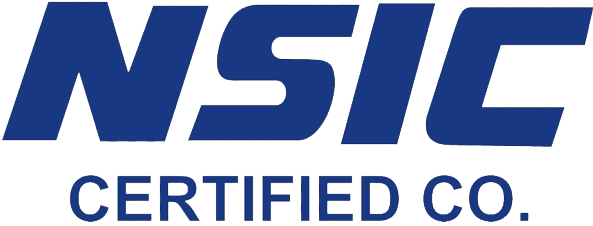Hold on.
I’ll give you the practical meat first: three concrete errors to avoid if you run or plan to launch a gambling business that touches the US market.
First, misreading the Wire Act and federal guidance can freeze payment rails overnight.
Second, treating state licenses as optional—rather than foundational—creates massive legal and growth friction.
Third, under-investing in AML/KYC and transaction monitoring invites regulatory scrutiny and heavy remediation costs that crush margins for years, not months.
Okay, breathe.
Here’s what bugs me: too many operators learn these lessons the expensive way.
On the one hand, a once-healthy operator can be operating profitably across multiple states; on the other, a single gap in compliance, an ambiguous marketing push, or a payments workaround can trigger freezes, fines, or outright market exits, costing millions.
To be clear, these are practical failures I’ve seen in case files and from people who buried their startups; the scenarios below map step-by-step mistakes and immediate mitigations you can use today.

Why US Regulation Breaks Businesses: A Quick Diagnosis
My gut says the number one reason businesses fail is optimism about legal gray areas.
Most founders assume “no one will notice” or that a smart payments partner will shield them.
That optimism collapses when banks, processors, or state regulators open investigations and freeze accounts, which then triggers AML alerts and partner exits.
The correction path — legal teams, remediation, re-licensing — often costs multiples of initial compliance savings and kills momentum for user acquisition and retention.
Three Mini-Cases: Real-ish Failures, Real Lessons
Case A: the payments workaround.
A US-facing operator routed wagers via a foreign aggregator while advertising locally; processing partners flagged odd flows and froze settlement.
Regulators demanded source-of-funds records and deposits were clawed back; the platform had to refund customers and lost trust.
Lesson: routing tricks are fragile; design payment flows with state-by-state admissible methods and share clear contractual records with banks.
Case B: marketing misfire.
A brand ran targeted promos near prohibited jurisdictions without geo-fencing, and a state regulator issued a cease-and-desist plus civil penalties.
The operator had to retract offers and pay an expensive settlement while traffic evaporated.
Lesson: use strict geolocation and keep marketing audit trails; one email blast can create a long-term enforcement headache.
Case C: KYC shortcuts.
To speed growth, a site relaxed address verification for new VIPs.
A later audit uncovered multiple synthetic accounts and suspicious deposits; remediation required full re-verification, temporary freeze of withdrawals, and reputational damage that reduced LTV by double-digit percentages.
Lesson: verify early, and scale verification as volumes rise; the short friction saves huge long-term costs.
Common Mistakes and How to Avoid Them
- Assuming federal law is uniform — instead, map each target state’s statute and administrative guidance before launch.
- Outsourcing compliance without retained internal expertise — keep at least one experienced compliance officer on staff.
- Using ambiguous marketing geofencing — implement verifiable geolocation and retain logs for 7+ years.
- Ignoring payment partner terms — integrate with partners who publish gaming-specific compliance processes.
- Underfunding remediation — set aside a regulatory reserve; plan for 3–6 months of fixed costs if an action happens.
Quick Checklist — Immediate Actions for Operators
- Map legal exposure by state (list each site of active marketing or players).
- Confirm payment processor gaming acceptance and written attestations.
- Audit KYC rules: ID, address proof, enhanced due diligence for high-value accounts.
- Run a marketing audit for geolocation and targeted campaigns over past 12 months.
- Document AML transaction monitoring thresholds and suspicious activity workflows.
Comparison Table: Licensing & Compliance Approaches
| Approach | Speed to Market | Legal Robustness | Cost (Year 1) | When to Use |
|---|---|---|---|---|
| Operate via offshore license + US-facing marketing | Fast | Weak | $50k–$200k | Testing product-market fit only, avoid for long-term operations |
| State-by-state licensing (NJ, PA, MI, etc.) | Slow | Strong | $500k–$3M+ | For sustained US market operations and institutional partners |
| White-label with compliant US brand | Moderate | Moderate–Strong | $150k–$1M | When capital constrained but requiring better compliance |
Strategic Fixes — What To Do If You’re Already In Trouble
Alright, check this out.
If a payment processor freezes funds: contact counsel and the processor immediately, request the forensic trigger report, and prepare full customer documentation for a 30/60/90-day remediation plan.
If a state regulator sends a notice: pause related marketing, preserve all logs, and engage a local counsel versed in gaming enforcement to negotiate timelines and mitigation credits.
If KYC failures are identified: implement instant re-verification for the at-risk cohort, set withdrawal caps pending verification, and communicate transparently to affected players to maintain trust while you fix the hole.
To rebuild after a regulatory hit you must be surgical: preserve liquidity, avoid public panic, and prioritize documentation and remediation timelines that you can meet reliably.
If you’d like a real-world reference for platform design and safe procedures, compare practical platform implementations and operating notes at visit site which demonstrates layered KYC and payments integrations useful for operators planning cross-border flows.
Technical Controls You Should Implement
- Geo-fencing with multi-source verification (IP + GPS + payment instrument BIN region).
- Transaction monitoring rules with adaptive thresholds (velocity, source, size).
- Segregated custody for player funds where required by state law or partner demands.
- Documented SAR process and an internal compliance committee with monthly reviews.
- Automated audit trails for marketing: who targeted whom, when, and why.
Mini-FAQ
Q: I’m small — do I really need state licenses to test US demand?
A: Short answer: yes, if you plan to accept US customers or advertise to them. Testing with offshore-only setups might show product interest, but it exposes you to payment freezes and reputational risk; run non-US pilots or fully white-label through a licensed US partner if you lack capital for licensure.
Q: What are the biggest blind spots for payments?
A: Blind spots are: (1) provider terms that forbid gaming, (2) cross-border settlement without proper licensing, and (3) lack of evidence that funds are not derived from illicit sources. Each of these triggers partner exits and bank AML reviews—close the gaps with signed gaming-acceptance letters and robust AML controls.
Q: How aggressive should KYC be for recreational players?
A: Proportionate. Use tiered KYC: light for low deposits, enhanced for higher cumulative deposits or suspicious patterns. But never skip basic POI/POA checks — the cost of missing fraud is far higher than the friction added by verification.
Common Mistakes and How to Avoid Them — A Checklist
- Relying exclusively on a single payment provider — diversify to avoid single-point-of-failure.
- Assuming marketing compliance is “automated” — schedule manual audits quarterly.
- Not allocating funds for remediation — set aside 3–6 months of opex in a reserved account.
- Using ambiguous “sweepstakes” or “skill game” labels to bypass laws — get legal sign-off and a written opinion before going live.
- Under-documenting customer consent and communications — keep immutable logs for disputes.
Two Small Examples (Hypothetical, but Typical)
Example 1 — A startup took US credit card deposits via an offshore processor. They thought micro-merchant accounts masked volume. Two months later the processor flagged gaming-like deposit patterns, froze settlements, and demanded a remediation plan. The startup lost 40% of revenue while negotiating. Preventable? Yes — written processor acceptance and a plan to move to processor partners experienced with gaming would have avoided the freeze.
Example 2 — A marketing team tested push notifications in a border city without geofencing. A regulator received complaints and issued a warning. The brand removed the notifications but still paid legal fees and reworked the campaign. Small geo errors cause outsized costs — add geofence checks into campaign build checklists.
18+. Responsible gaming matters — set deposit and loss limits, offer self-exclusion, and provide help resources (e.g., National Council on Problem Gambling: 1-800-522-4700). If you’re in the US, consult state regulators and licensed counsel before accepting players from any jurisdiction.
Sources
- https://www.justice.gov/archives/opa/press-release/file/1084386/download
- https://www.congress.gov/bill/109th-congress/house-bill/4953
- https://www.nj.gov/oag/ge/
About the Author
Alex Mercer, iGaming expert. Alex has advised startups and operators on payments, licensing, and compliance across North America and Europe, and has led remediation programs after regulatory investigations.










